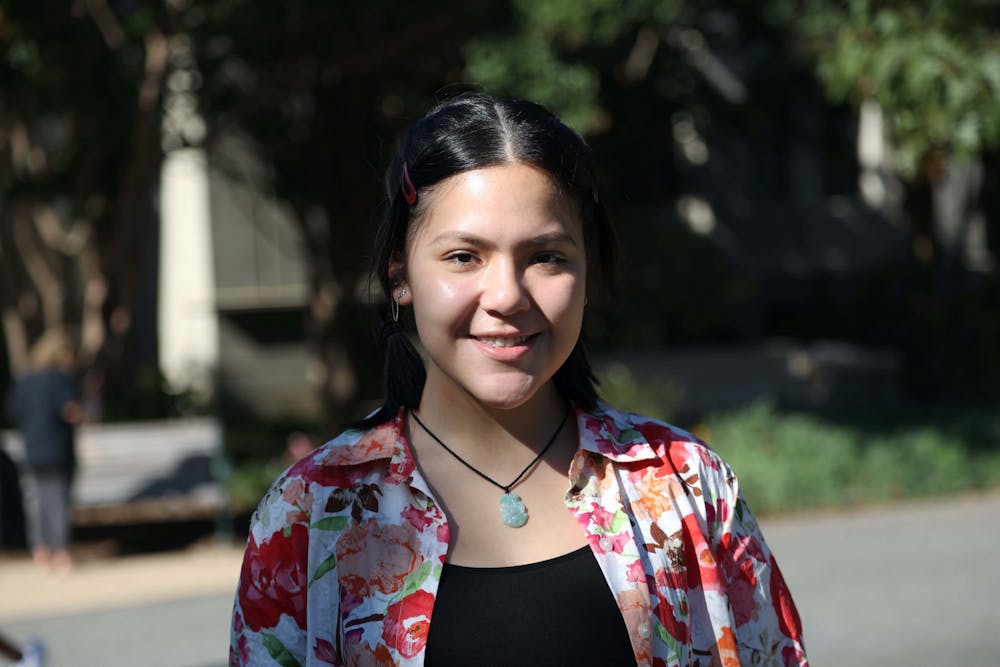Coming to American University was a culture shock not only because of the new environment and meeting people from all over the world, but also experiencing the different ways people carry themselves and behave in public.
At first, it was shocking to me when I noticed certain attitudes or approaches people would take that are way out of my comfort zone. For instance, there was a student on the wonk bus who shouted not once but twice to the driver to “turn off the f------ lights” because the bus lights were too bright at night. I would try to excuse what I saw as rude behavior as such and call them personality traits. But after months of getting to know more people at AU and noticing a pattern of poor manners, it has become nothing but an embarrassment and a disappointment to witness these behaviors being glossed over or tolerated by our community.
The first encounter that sticks out occurred in TDR. Not only were students being impatient with the kitchen staff, but they were also speaking disrespectfully to the workers that were serving them. The distinct difference between the treatment of AU staff — food service employees, maintenance staff; the ones that make AU run — versus the other AU students and faculty is a clear indication that a lot of students simply do not see our essential workers as equals. This is problematic and highly hypocritical considering how “progressive” others think we are.
The kitchen staff are not the only staff members being disrespected. From my observation, I have also seen students being impolite and rude to maintenance staff or customer service workers. Many AU students are ungrateful for all the generous and supportive services staffers provide. This attitude also manifests in the way AU students treat shared spaces. Whenever I go to TDR, there are always tables that are filled with plates of food waste as if there is no station dedicated to collecting plates and the workers are responsible for taking care of their leftovers. Students also leave their waste and items in shared spaces like lounges in residence halls. In a casual conversation with a floormate of mine in McDowell, they mentioned that they cleaned up another person’s leftovers in the lounge because they did not want the maintenance staff to have to deal with such troubles on top of their duties. Although kind gestures like these are appreciated, situations like these should not happen in the first place.
These are occurrences I personally witnessed or experienced, however, I know that many students share the same sentiment that a lot of AU students have poor manners. Something that could explain these repetitive behaviors is the sense of entitlement and expectation due to students’ background and upbringing.
Coming from a more disciplined household, I was taught to respect elders, say “please” and “thank you,” put away personal items and leftovers, and many other things that taught me to fundamentally respect others. However, I now recognize that everyone comes from a different place, which leads to differences in many areas, including manners.
The majority of AU students come from wealthy backgrounds. In fact, the median family income of students attending AU is $155,300 with 67 percent coming from the top 20 percent, which is even higher than I anticipated. Even though that does not guarantee poor manners, students who come from a more wealthy, stable and privileged environment tend to have less of a need to mature, be aware of others or become independent quickly as much as students who are born in an environment that requires them to actualize real-life knowledge at an early age.
A New York Times article suggests that “Working-class children are happier, more independent, whine less and are closer with family members, Ms. Lareau found. Higher-income children are more likely to declare boredom and expect their parents to solve their problems.” There are many students who had never done their own laundry before coming to AU that probably relied on their parents or others to “solve their problems.” This is an indicator that people who never needed to become independent possess a privilege that shapes a person’s perspective in an unrealistic way that hinders their ability to courteously socialize in a public setting.
Cleaning up what we leave behind and treating everyone in our community — especially those who kindly serve us and are an essential part of our community — with the same respect is not only the right thing to do but a basic compassion. The purpose of writing this is not to point fingers at individuals or simply reveal an ugly truth that is embedded in the AU culture, but more importantly, to question and reflect upon our own behaviors. Are you aware of the impact of your words and actions on the AU community?
Emily Brignand is a second-year in the School of International Service and a columnist for The Eagle.





